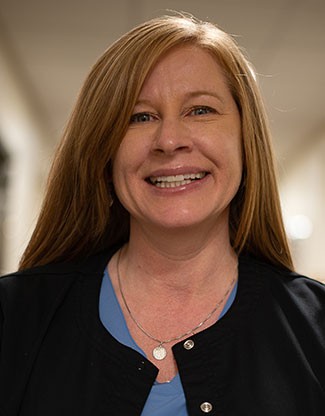Breast Cancer: Shelly Koch, screening supervisor, CHI Saint Joseph Health – Breast Care Center, the Women’s Hospital at Saint Joseph East
The idea of a mammogram may strike discomforting thoughts in the minds of some women, but the 15-minute screening could be a lifesaver. Our Breast Care Center, a National Accreditation Program for Breast Centers, offers 3D mammography to all patients.
This sophisticated screening option is designed to detect cancerous breast tissue better than traditional mammography.
“If we can find cancer early, it changes everything,” Koch said. “With the technology as it is today, we can detect cancers when they are a couple of millimeters in size, which is phenomenal.”
Screening mammograms are often recommended annually, beginning at age 40, but patients with a strong family history of breast cancer may start screening mammograms earlier. If breast cancer is discovered, our multidisciplinary, patient-centered tumor board will thoroughly discuss each case and develop the best course of care. When detected early, in a localized state, the five-year survival rate is 99%, according to the ACS. That’s why regular screening is so important. “Do not be tempted to skip a year,” Koch said.









